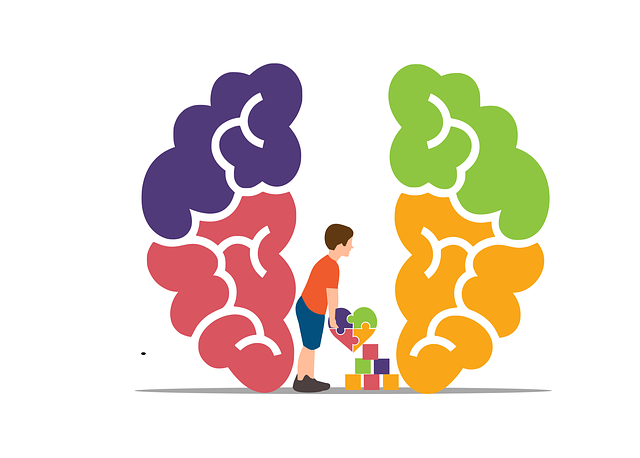Boulder Codependency Therapy (BCT) combines the Recovery Capital Framework with focus on communication, boundary setting, and trauma support to significantly boost resilience and mental wellness. Through BCT's techniques, individuals learn to challenge codependent behaviors, set clear goals, and measure progress to effectively navigate challenges and reduce burnout risk. This approach not only strengthens their supportive network but also fosters independence and continuous learning in a culturally sensitive environment.
“Resilience is the cornerstone of emotional well-being, especially in today’s fast-paced world. Among various methodologies, RFM (Resilience Flex Modulus) stands out as a powerful tool for building mental fortitude. This article explores how Boulder Codependency Therapy techniques integrate seamlessly with RFM to create effective resilience-building exercises. We’ll delve into practical strategies for implementation and measurement of success, offering insights on how individuals can harness their inner strength and adapt to life’s challenges, ultimately enhancing overall well-being through the proven methods of Boulder Codependency Therapy.”
- Understanding RFM and its Role in Resilience Building
- Implementing Boulder Codependency Therapy Techniques for Effective Exercises
- Measuring Success and Adjusting Strategies for Optimal Resilience Development
Understanding RFM and its Role in Resilience Building

Resilience is a vital component of mental wellness, and Boulder Codependency Therapy (BCT) offers powerful tools to enhance it. RFM, or Recovery Capital Framework, is a concept that recognizes the importance of resources, skills, and motivation in an individual’s recovery journey. It posits that having a strong foundation in these areas enables people to navigate life’s challenges more effectively. By understanding one’s current capital and actively building new resources and skills, individuals can improve their resilience and overall mental wellness.
This framework is particularly relevant in today’s fast-paced world where burnout among healthcare providers and those dealing with mental illness is a growing concern. The Mental Wellness Podcast Series Production has played a significant role in raising awareness about mental health issues and providing valuable insights into effective coping mechanisms. Moreover, it aligns with the broader goal of Mental Illness Stigma Reduction Efforts, as fostering resilience can help individuals overcome internalized stigma and build a more positive self-perception. Similarly, BCT’s emphasis on RFM contributes to successful Burnout Prevention Strategies for Healthcare Providers by equipping them with the means to maintain their mental fortitude in demanding professions.
Implementing Boulder Codependency Therapy Techniques for Effective Exercises

Implementing Boulder Codependency Therapy (BCT) techniques can significantly enhance resilience-building exercises. BCT focuses on improving communication strategies within individuals and their support systems, which is a crucial aspect of fostering resilience. By recognizing and challenging codependent behaviors, participants learn to establish healthy boundaries, promote self-care, and build a robust foundation for coping with life’s challenges. This therapeutic approach encourages individuals to become more independent and resilient in managing stress and trauma, thereby reducing the risk of burnout.
Incorporating BCT into resilience exercises involves creating safe spaces where participants can openly discuss their experiences without fear of judgment. Trauma support services provided within these exercises enable individuals to process past traumas, which is essential for breaking codependent patterns. Additionally, promoting effective communication strategies helps in building strong connections with peers and mentors, further strengthening the supportive network that is vital for resilience. This holistic approach ensures that participants not only develop individual coping mechanisms but also learn to navigate interpersonal dynamics healthily, contributing to their overall well-being and burnout prevention.
Measuring Success and Adjusting Strategies for Optimal Resilience Development

Measuring success is a critical component of any resilience-building program, especially when employing techniques from Boulder Codependency Therapy. By setting clear and quantifiable goals, practitioners can assess the effectiveness of exercises designed to enhance an individual’s or group’s ability to navigate challenges. This process involves tracking progress through regular assessments, which may include self-reported surveys, observations, or feedback sessions. The data collected provides valuable insights into what strategies are resonating and which require refinement.
Adjusting strategies based on this feedback is essential for optimal resilience development. It allows the modification of exercises to better suit individual needs, ensuring that conflict resolution techniques remain relevant and effective. Incorporating cultural sensitivity in mental healthcare practice further enriches this process by recognizing diverse perspectives and tailoring interventions accordingly. This iterative approach fosters a dynamic environment where learning and growth are continuous, ultimately leading to enhanced mental wellness as evidenced through the podcast series production of successful resilience-building programs.
Boulder Codependency Therapy offers a powerful framework for enhancing resilience through targeted exercises. By understanding RFM and its role, implementing these therapy techniques effectively, and measuring success, individuals can navigate challenges with greater strength and adaptability. This holistic approach to resilience building empowers folks to thrive in today’s dynamic world.














